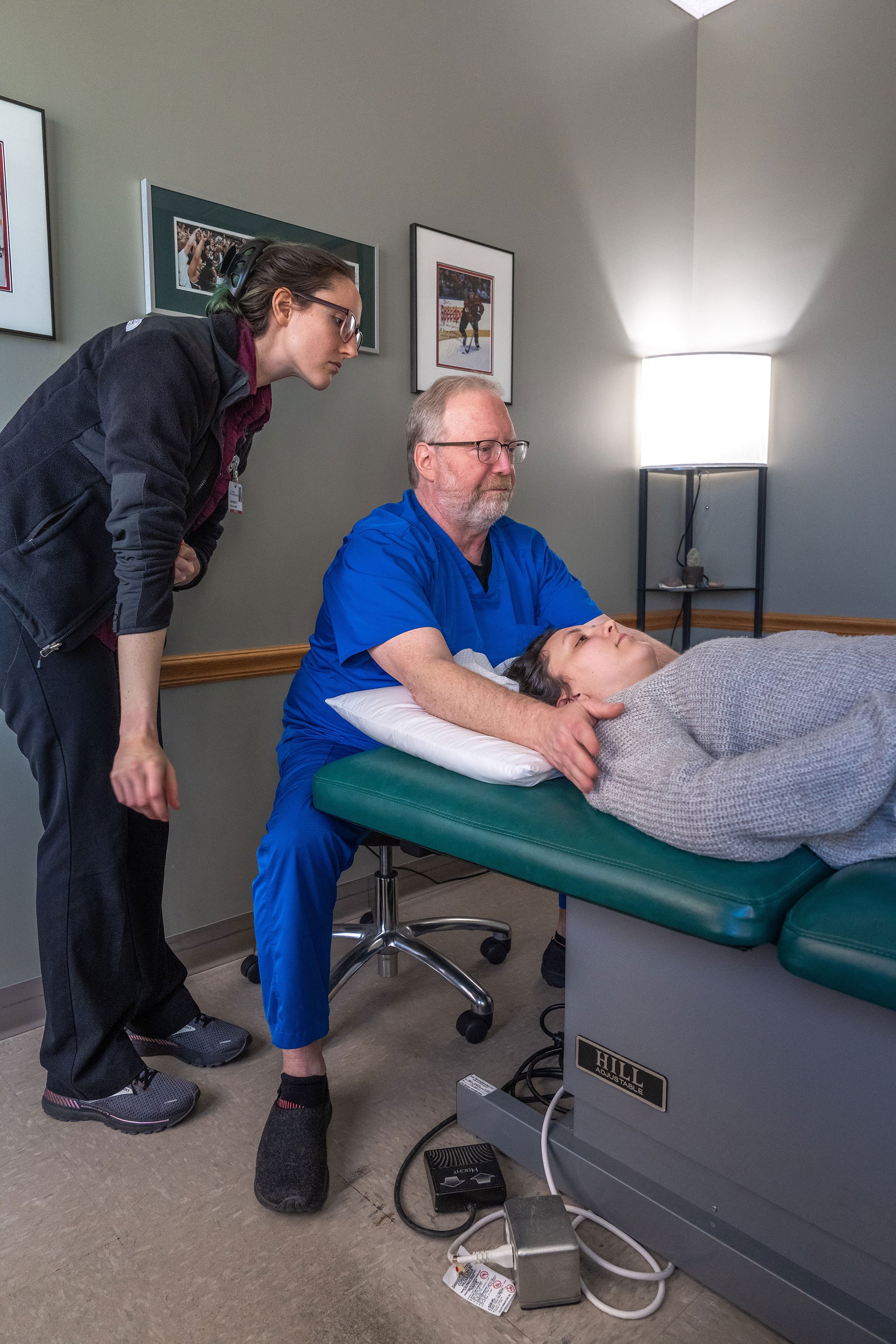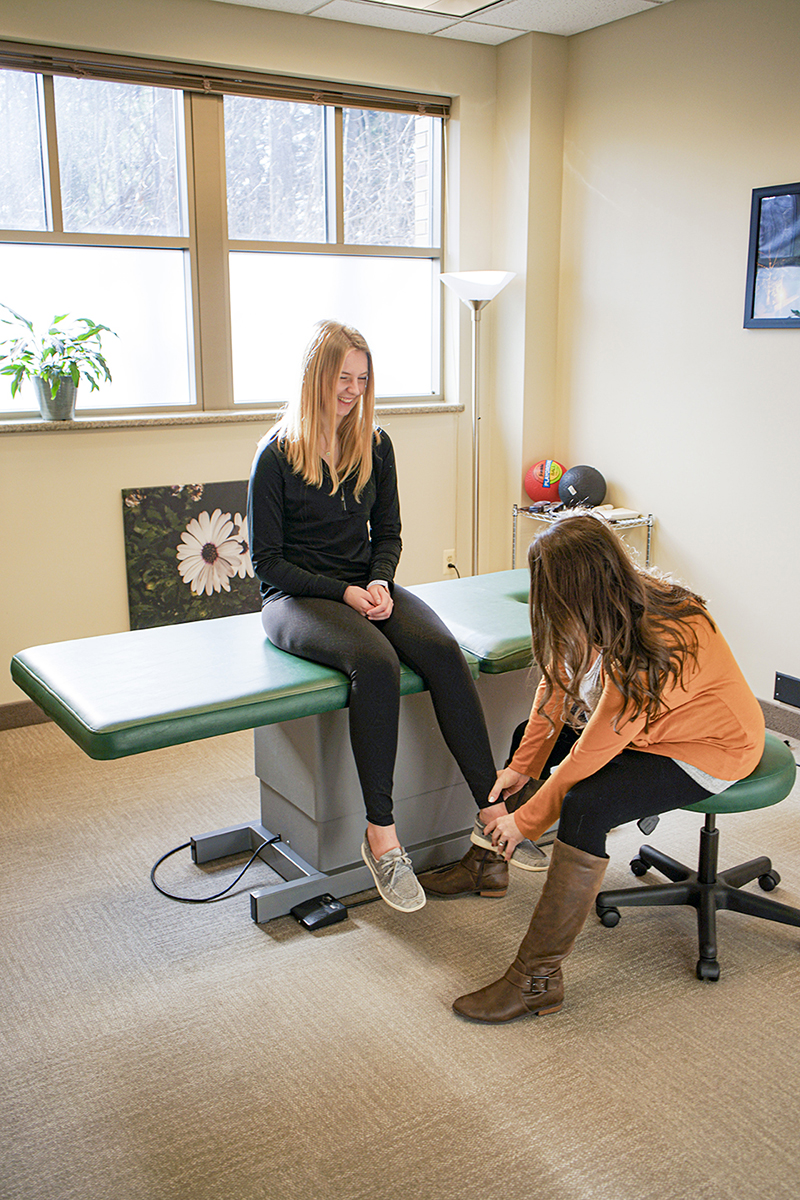Developed 130 years ago by physician A.T. Still, osteopathic medicine is one of the fastest growing healthcare professions in the United States and brings a unique philosophy to traditional medicine. With a strong emphasis on the inter-relationships of the body’s nerves, muscles, bones, and organs, doctors of osteopathic medicine, or D.O.’s, apply the philosophy of treating the whole person. D.O.’s place particular emphasis on the musculoskeletal system. D.O.’s believe that all of the body’s systems, including the nervous and musculoskeletal system, work together and that disturbances in one system may impact function elsewhere in the body.
OMM complements traditional therapies and offers non-surgical options for acute and chronic neuromusculoskeletal (NMM) conditions.
- Migraines, Tension Type Headaches, TMJ Disorder, Bruxism Headaches, Positional Plagiocephaly, Neck Pain, Torticollis, et al.
- Thoracic Rib Cage Pain, Idiopathic Scoliosis
- Upper and Lower Extremity Pain, Carpal & Ulnar Tunnel Syndrome, Knee Pain, Acute & Chronic Ankle Injuries
- Low Back and Pelvic Girdle Pain, Pregnancy Related Low Back Pain, et al.
- Sports-Related Injuries, Performance Art & Work Related Repetitive Strain Pain
Residency Program
The Michigan State University ONMM Residency Program is fully ACGME accredited. The residency education program guides the Resident in developing the necessary knowledge, skills, and values essential to become a competent practitioner, educator and researcher in the discipline of the neuromusculoskeletal system. Training will emphasize the development of skills that serve the patients, hospitals, and community and will assist residents to become strong members of the medical profession. Residents will develop communication skills between physicians, patients, government and health care agencies. They also will be provided with the knowledge to make wise economic decisions in order to provide cost-effective, quality ONMM.
Student Clinic
The student OMM clinic is a student-run clinic offering free services to students, faculty, and staff of Michigan State University as well as members of the community. First and second-year medical students, under the supervision of residents and faculty physicians, use osteopathic manipulative treatments to treat pain, limited mobility and decreased range of motion.

